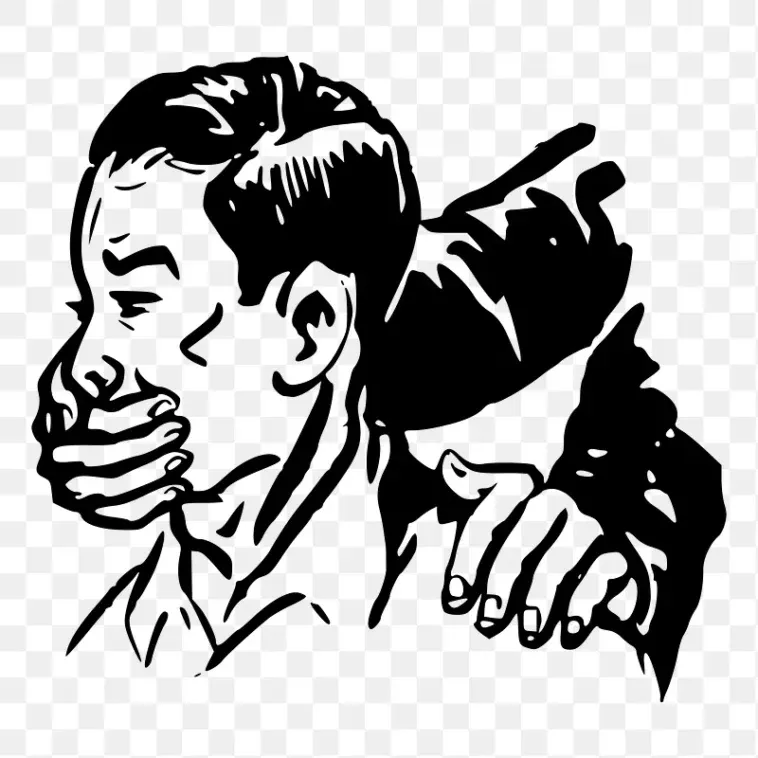(UndercoverDC) TSA’s Quiet Skies program is one of the most egregious examples of government overreach the U.S. government has ever implemented. Unfortunately, the program is not particularly unique in its egregiousness. However, this column serves as a fitting example of the type of Big Brother surveillance state that has only gotten worse under the Biden-Harris regime.
On Aug. 4, UncoverDC broke an exclusive story about former Rep. Tulsi Gabbard’s placement on the Quiet Skies watchlist, a list she is still on to this day. The list should more accurately be called a blacklist because once you are placed on it, travel becomes exponentially more difficult. Air travelers on the list are subjected to “enhanced screening,” a euphemistic term for TSA screening that, in some cases, borders on being abusive and is always lengthy. The Quiet Skies list also entitles the unsuspecting traveler to a Quad S (SSSS) designation on one’s boarding pass and a team of Federal Air Marshals, bomb-sniffing dogs, and undercover personnel who follow the traveler from the time they check in at the airport to the time they deboard the plane. In some cases, travelers are also tracked outside the airport. One J6 defendant reported being followed while on a short vacation in Puerto Rico.
Thousands of innocent Americans are placed on the Quiet Skies watch list. Quiet Skies is an illegal, unconstitutional surveillance program that captures personal identifying information and stores that information in the TSA’s Transportation Information Sharing System (TISS) for 25 years, according to a 2008 Privacy Impact Assessment (PIA) of TISS. Federal Air Marshals (FAM) contribute to the TISS by observing passengers placed in the program. The TISS database is shared both within and outside of DHS. TSA draws on several government databases for its information as well.
The Quiet Skies list is not a “No Fly” watch list. The No Fly list is allegedly reserved for “known or suspected terrorists” who are ideally not allowed to board planes. Passengers in the Quiet Skies program, however, are allowed to fly. Nevertheless, passengers in Quiet Skies are often still described as “102 suspect DTs” or suspected Domestic Terrorists. This designation begs a rational question–why are these people being allowed on planes if the government is so worried about them?
Below is a digital copy of a passenger profile provided by Sonya LaBosco, Executive Director of the FAM advocacy group, the Air Marshal National Council (AMNC). The information pictured from a law enforcement database references the wife of a Federal Air Marshal who was placed on Quiet Skies because she happened to be in D.C. during the Jan. 6, 2021, protests. Note that the profile states she entered the U.S. Capitol on Jan. 6. She absolutely did not go on the grounds or in the Capitol, and AMNC proved it.

Remarkably, a 2019 PIA document for Secure Flight programs known as Silent Partner for Americans traveling internationally and Quiet Skies for domestic passengers, denies Quiet Skies designees are labeled as domestic terrorists. That is utter horsepuckey. UncoverDC took a deep dive into the contents of the 2019 document and uncovered some rather disturbing facts.
However, before diving in, understand that your right to privacy in the U.S. is a big deal, or at least it should be if we care about the U.S. Constitution. The very existence of a 2019 Quiet Skies PIA update proves that the U.S. Government knows it is skating on thin ice with programs like these. Reading through the bureaucratic word salad that graces the pages of this 15-page CYA puts every last hope for privacy to rest. The document serves only to terrify while absurdly proving again and again just how little our government cares about protecting any American right, let alone the right to privacy. It is hard to find a rule or guideline in this absurd updated report that is not discretionary on the part of the government and not exactly a prescription for protecting the privacy rights of Americans. Anyway, Let’s dive in.
Comb the report all you want for Quiet Skies rules; you won’t find them. The rules governing one’s placement on the Quiet Skies watch list seem to be not only a moving target but they are published exactly nowhere in the report or anywhere else for that matter. Nevertheless, these ever-elusive rules lead to dossiers of personal information stored on government servers about regular Americans who, in most cases, have done nothing to warrant the invasive recordkeeping and record sharing. In all cases, at least initially, individuals have no idea they are on the list.
Back in the day, TSA employed about 2800 Behavior Detection Officers (Hello Orwell) or BDOs. BDOs tracked, observed, questioned, and reported on passengers who were not on any watch list. The BDOs were tracking people because of their appearance or behavior. Those observations and characteristics might someday qualify them for a government watch list. A checklist of behaviors monitored by BDOs was leaked to the Intercept in 2015. This checklist is similar to what FAMS continues to use to track passengers placed on the Quiet Skies watchlist.
Keep in mind that a 2020 OIG report on Quiet Skies revealed that no terrorist threats have ever been thwarted as a result of this program. LaBosco told UncoverDC that FAM reports are ignored even though many of the reports clearly state that the FAM has “no idea why the passenger is being followed.” That is some quality control right there.
The BDO program is now defunct, mainly because it was never put through any reasonable scientific rigor before its widespread implementation. A 2013 Homeland Security OIG report found that BDO reporting was subjective and likely no more effective in rooting out suspected terrorists than random screening. In 2013, Democrats led by Homeland Security Chairman Bennie Thompson said the program lacked “objectivity,” “wasted taxpayer dollars,” and did not improve airport security. Between 2007 and 2013, the U.S. spent about one billion dollars on the BDO program. Thompson and his Democrat pals asked that no more tax dollars be spent on this program.
Ironically, it was the same Bennie Thompson who sent out the blatantly inflammatory letter on Jan. 11, 2021—essentially a bat signal for the FBI and the TSA to track J6 attendees. Thompson’s letter called protesters members of “white supremacist and other domestic terror groups.” Thompson’s letter would arguably serve as a basis for being placed in the very type of program he wanted to defund in 2013. Thompson would chair the House Select Committee Investigation of Jan. 6.
Many J6ers have since been placed on the Quiet Skies list. Thompson’s letter also arguably served as one of the predicates for the unequivocally biased and weaponizedinvestigation of J6 carried out by the House Select Committee. The Select Committee investigation helped justify thousands of arrests nationwide. The FBI initially raided many of those arrested. In many cases, J6 defendants walked in through open doors, wandered around, and left, hardly criminal activity.
According to LaBosco, days after Jan. 6, the FBI and the TSA worked together to obtain passenger manifests of every person flying in and out of D.C. the days before, during, and after Jan. 6. Many of those individuals are now unlucky owners of Quad S boarding passes, are followed by teams of FAMS, and are relegated to lengthy security searches and missed flights.
In the name of brevity, let’s skip to the real heart of the report: the so-called privacy risk caveats featured in the updated guidelines in the 2019 DHS/TSA PIA report.
Privacy Risk Number One contains the following language:
Huh. So we have no specific derogatory information to justify the expensive and invasive tracking of said passenger, but we may be searching them more often than we would a real terrorist. That’s fantastic.
Let’s go to Privacy Risk Number Two, which, to paraphrase, says, “Hey, we might erroneously incorrectly identify you, and therefore, you might be that similar person whose name, gender, and date of birth might land you in the Quiet Skies hellhole.” Don’t worry; the document assures us that algorithms will mitigate the risk, and you might be removed “after the requisite number of encounters or period of time.” Note that the document later informs interested readers that you’ll probably be on the list for 15 years, seven of which are active and eight of which are dormant.







